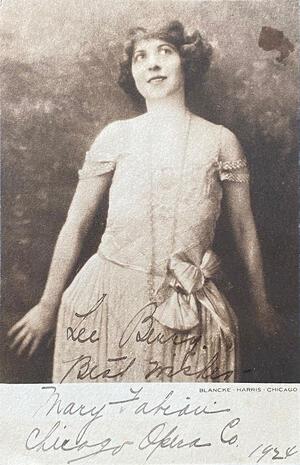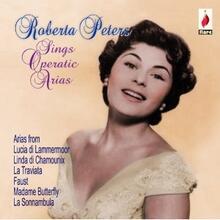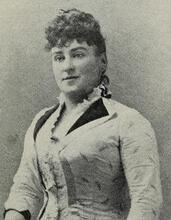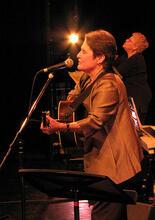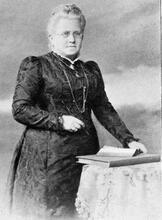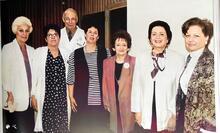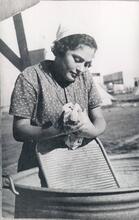Mary Jacqueline Fabian
Mary Jacqueline Fabian was dedicated to making opera accessible to all. Fabian debuted as Musetta in Puccini’s La Bohème at the Century Theater in New York in 1923 and took on some of the opera world’s most demanding soprano roles. She toured the United States and Europe and performed with the Chicago Civic Light Opera, the New York Philharmonic, and the Chicago Symphony Orchestra. Fabian founded and directed opera companies in Miami, Birmingham, and Westchester, working with local schools to incorporate amateur and student dancers into professional performances. From 1942 to 1948 she served as a captain in the Women’s Army Corps, and after the war, she relocated to Vienna to become youth director of a welfare and education program for children who had survived the war.
Article
After debuting in 1923 as Musetta in Puccini’s La Bohème at the Century Theater in New York, Mary Jacqueline Fabian added to her soprano repertoire the well-known yet demanding roles of Madame Butterfly, Mimi, Manon, Micaëla, Marguerite, Violetta, and Gretel. Touring the United States as a star performer with the Columbia Opera Company during its 1929–1930 season, she appeared at other times with the famed Chicago Civic Light Opera. She also performed throughout Europe with several companies, enjoying particular success in France and Italy. At different points during her stage career, Fabian sang with the New York Philharmonic Orchestra, with the Chicago Symphony Orchestra, and at the Hollywood Bowl, and was featured in numerous radio productions. A slight figure at five feet, with auburn hair and blue eyes, she was the first star of the grand opera to appear in talking movies and was awarded a gold medal by the Hollywood Breakfast Club.
Mary Fabian was born on July 7, 1900, in Sioux City, Iowa, to David and Rachel (Silke) Fabian. Both she and her sister Rose received musical training. Rose became an accomplished violinist. Fabian studied at the New England Conservatory of Music, the American Academy of Dramatic Art in New York, the Milano Conservatory of Music, and the Paris Conservatory. Her private vocal instructors included Whitney, Guillo, and Outland in the United States, and Cadore, Storchio, Conti, and Agininni abroad.
Fabian’s primary legacy to the arts lies not in her performances, her versatility on stage, or her popularity behind the microphone, but rather in her organizational skills and her unswerving conviction that opera and music education are not just for the elite. Founding and directing three civic opera companies in three areas—Miami, Birmingham, and Westchester—she worked in collaboration with local school and educational boards, incorporating amateur school dancers into her professional performances. In addition, she was among the first to render foreign operas in English for American audiences.
From 1942 to 1948, Fabian was a captain in the Women’s Army Corps and served part-time in Europe. After the war, her career took yet another turn, albeit not one out of keeping with her previous preoccupations. In October 1948, she temporarily relocated to Vienna to become youth director of welfare and educational programs handling approximately 250,000 children, part of the rehabilitation program addressing the acute social disruption in the American zone of Austria.
As founder of the American Civic Opera Productions, which sought to further and support the connections between opera and education, Fabian maintained a business address in New York City, while residing more permanently in Birmingham, Alabama. Her professional associations included the Business and Professional Women’s Club, Delta Omnicon (honorary), and the Federated Women’s Club. In her rare quiet hours, she enjoyed bridge, theater, hiking, and collecting stamps and objets d’art.
American Women 2, 1937–1938 (1937): 210.
International Who Is Who in Music. 5th ed. UK: Psychology Press, 2000.
UJ.
Who’s Who in America 20, 1938–1939. New York: Marquis Company, 1939.
WWIAJ (1938).

